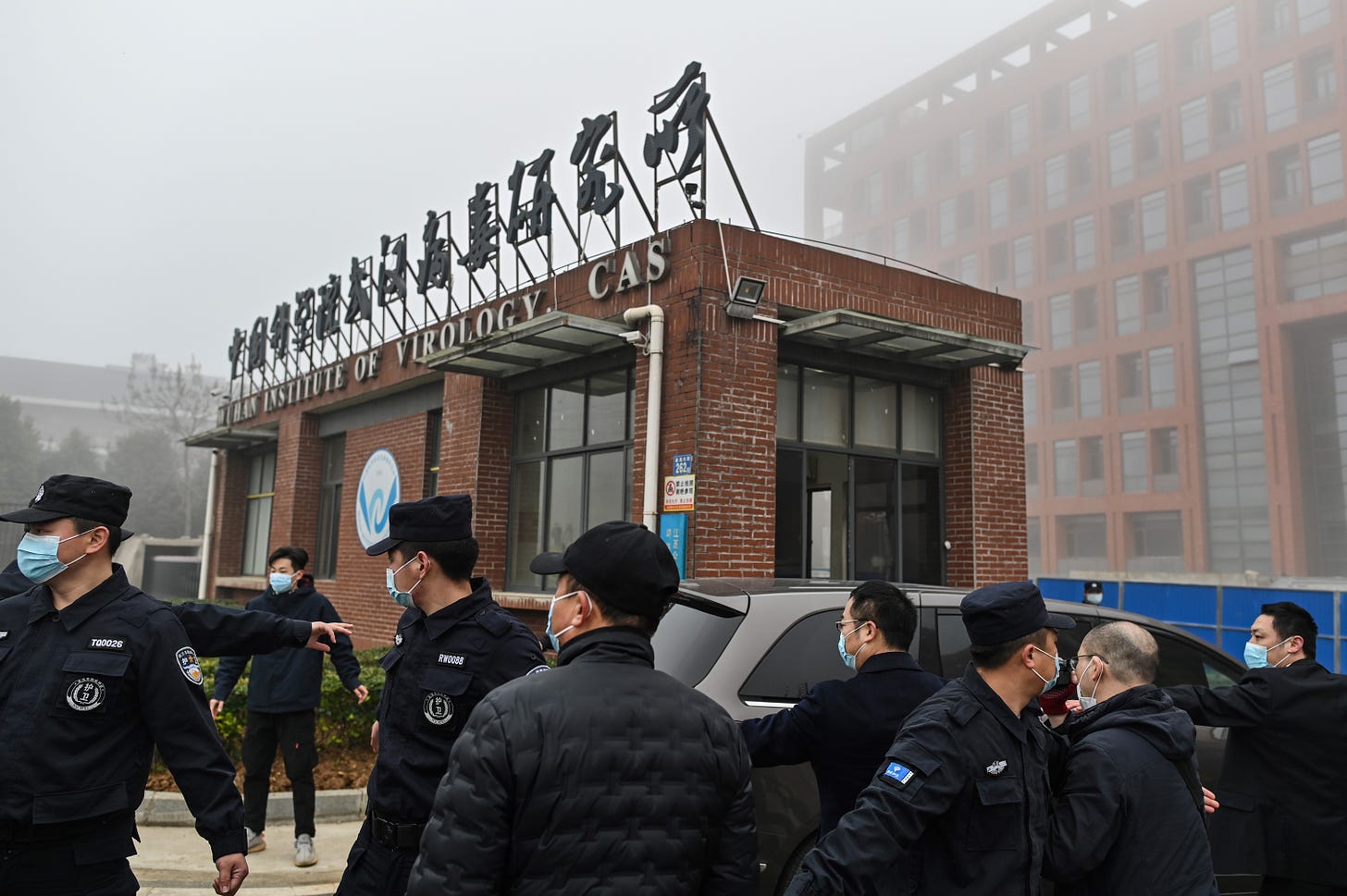Will the Lab Leak Hypothesis be a Bipartisan Concern in the Next Congress?
Some Democrats in Congress are joining the Republicans in seeking answers.
When the first SARS epidemic broke out in 2003, it didn’t take much time and effort to find clues to the natural origins of the virus.
“Within a couple of months, it was clear that food handlers had antibodies or had the virus, that the animals in the markets, particularly the palm civets, had the virus, et cetera, et cetera,” said author and biologist Matt Ridley on the Triggernometry podcast. “A very clear pattern emerged.”
Two years later, SARS-CoV-1 was traced to the horseshoe bat.
Yet after nearly three years, we still don’t know where SARS-CoV-2 came from. With far more advanced technology than we had in 2003, the impediments have not been scientific. They have been political.
That could change with the next Congress.
Until now, in the United States, the question of where the virus originated has been polarized by partisanship. At the very outset of the pandemic, Anthony Fauci and other scientists contrived the appearance of a scientific consensus that the virus had evolved naturally in an animal population and then leaped over into humans. But the consensus was an illusion. From the beginning there were vocal and well-credentialed dissidents who argued that it was created in a Wuhan lab and escaped by accident. Concerned that vindication of their hypothesis would shift the blame for the pandemic from Donald Trump, Democrats stood in the way of investigations. Then, as the lab leak hypothesis came to be associated with the enemies of Anthony Fauci, it became yet another prop in the culture wars, digging Democrats and the media even further into their position.
Yet as public opinion has become increasingly doubtful of the natural spillover explanation, even the Biden administration has had to take the lab leak possibility seriously. Last year, the administration launched an official investigation into the question (with the Chinese government refusing to cooperate, the resulting report was inconclusive).
Republicans have been less touchy on the subject. Last month, Republicans on the Senate Committee on Health, Education, Labor and Pensions released a report concluding that “the COVID-19 pandemic was, more likely than not, the result of a research-related incident” — in other words, a lab leak. It was received by the media as one would expect a partisan report from Republicans to be: dismissively.
Now, however, more Democrats are aligning with public opinion on the question, as well as with the majority view of their own party’s voters. In response to a campaign questionnaire from the White Coat Waste PAC (I sit on the advisory board of the White Coat Waste Project), six Democratic House members running for re-election recently committed to investigating “whether dangerous US taxpayer-funded experiments on bats and other animals in Wuhan, China caused the COVID-19 pandemic.” (Notably, John Fetterman, the U.S. Senate candidate for Pennsylvania, answered that he would not support such an investigation.)
The Congress members are Matt Cartwright of Pennsylvania, Chris Pappas of New Hampshire, Mikie Sherrill of New Jersey, Sanford Bishop of Georgia, Elaine Luria of Virginia, and Eleanor Holmes Norton of Washington, DC. A seventh member, Brendan Boyle of Pennsylvania, did not respond to the item on the questionnaire, but he did recently tweet, “Getting to the bottom of the origins of COVID-19 is crucial if we are going to prevent the next coronavirus,” along with a link to a Vanity Fair/ProPublica article that formed the basis for much of the Republican Senate HELP Committee report.
Julie Germany of White Coat Waste PAC praised the House members for breaking from their Democratic “party bosses” who have done nothing but “foot dragging” on the issue. “The Wuhan animal lab was taxpayer-funded, and voters in both parties deserve to know if gain-of-function animal experiments caused a lab leak and pandemic,” she said.
It’s been hard to avoid the conclusion that the reason we still don’t know how the virus originated is because, on both sides of the Pacific, there are people who don’t want to know and don’t want the rest of the world to know, and who have the political power to make sure of it. That’s a formidable obstacle, but it’s a human one. It can be overcome.
Seven House members isn’t a sea change, but it’s an indication that if the Republicans take back the House, Senate or both and use their majorities to investigate the lab leak hypothesis, it could be a bipartisan effort. That in itself could break the political stonewall that has prevented us from answering what is perhaps the most important question on earth.




It isn't just a matter of partisanship in Congress. The Chinese government wasn't cooperative when WHO tried to investigate, and unless that changes, it's unlikely we'll really be able to reach a definite answer.
I agree that Congressional partisanship and culture war nonsense plays a role in all this, but it's secondary. If the Chinese government really wanted to uncover the truth, they could. But they don't want to, either because they already know it was a lab leak, or because they're worried it might have been, or at least because they're afraid that the truth, whatever it turned out to be, would be embarrassing for them.
It's not just a matter of historical justice, either. Stunningly, virologists CONTINUE to do the dangerous Gain-of-Function research that most likely led to the creation (and accidental release) of Covid-19. This research doesn't even have real scientific or medical value; its' real utility is in keeping virologists employed. Another example of how the professional-managerial class's financial objectives are an irrational driver of public policy, in this case with stunningly tragic results.